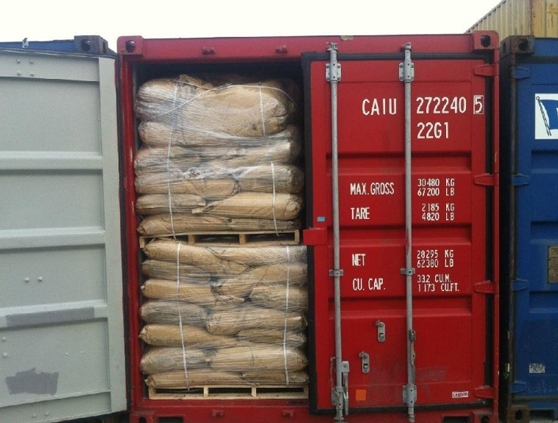
The calcination process is essential for converting petroleum coke (petcoke), a carbonaceous hydrophobic black solid, into a useful product that can be used in the aluminum smelting industry. The environmental compliance of the plants is therefore of interest to both smelters, and regulators.
During the calcination process, the petcoke is heated to high temperatures, which causes it to burn, release volatiles and decompose, or "coke out," into a sulfide-rich material called graphitized petroleum coke, or GPCO. GPCO can be caused by a variety of factors including coking temperatures and time in the oven. Graphitized GPCO has a very high carbon content (typically above 98%) and can be used to make carbon anodes for the Hall-Heroult aluminum smelting process, among other applications.

The calcination is done in a rotary kiln. In a typical kiln, the raw petcoke is fed into the kiln in a countercurrent fashion with hot flue gases. As the coke moves down the kiln, it is heated by the heat of combustion, causing its volatiles to boil off. The resulting vapors are cooled and condensed into a coke ash and then collected for disposal. The kiln is also equipped with a heat recovery system, which converts hot combustion products into steam that can be used as a power source.
Air emissions from the process of calcining are monitored to determine how they affect the surrounding environment. Studies have shown the absence of other pollutants the emissions from the calcining process are not expected produce a substantial public health risk.
Some states, like California, have created regulations that could force Oxbow to install scrubbers on its existing plants. The TCEQ in Texas has a bad history of bending down for oil companies. Neil Carman from the Sierra Club's Texas chapter says that enforcing regulations could lead to a lawsuit against Oxbow.
The airborne pollutants generated during calcination include particulate and a variety or organic compounds like SO2, NOx CO and VOCs. The toxicity of these compounds is heavily dependent on particle size, shape and physicochemical characteristics of individual particles. Unlike coal which has been proven to cause cancer of the lungs, GPCO’s low toxicity makes GPCO less of a concern for health than other industrial sources.
The open piles of petcoke currently stored in Southwest Detroit or Southeast Chicago are still associated with higher rates respiratory disease, specifically asthma. The exposed dust does not wash away by wind or rain as it would with coal. This dust can stay in the air for long periods of time, and can lodge in the lungs causing inflammation. It is for this reason that the EPA requires all calciners to use special dust suppression systems on their silos.

Write a Message